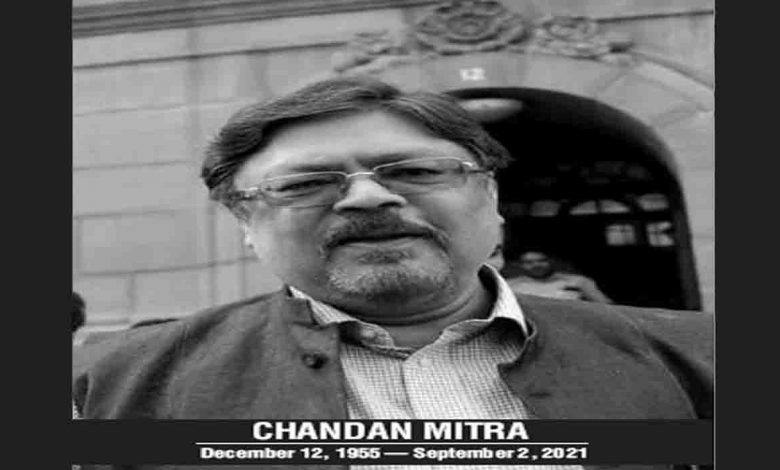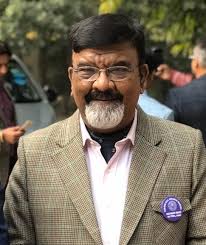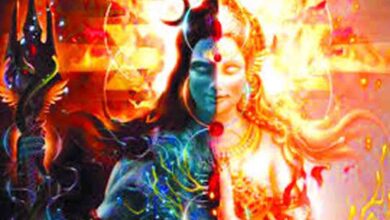In Memoriam | Boss kaun tha? Dr Chandan Mitra

 Sidharth Mishra
Sidharth Mishra
It has been three years since Chandan Mitra is gone. I left the Pioneer in 2012 summer but my phone still has his number saved as Editor. I last met him on January 19, 2019. I presented him a copy of my book Delhi Political 1947-2013 and clicked a picture together. Since we both had French beards and sported similar glass frames, some commented that I was indeed a true disciple, since I did not simply follow him in his writings but also the style of his beard.
Covid followed, poor health got the better of Chandan’s physical charm and our interactions got limited to exchange of messages on the phone. My last message to him was on 24 July 2021, on Guru Purnima. Somewhere I had this gut feeling that he may not be there to receive the customary message on Teachers’ Day, September the 5th. It turned out to be true.
In 1992, I was working as a district correspondent in the Patna edition of the Hindustan Times. I remember reading a front-page review of Mani Ratnam’s film Roja sitting in the dingy district bureau office. It was sometime then that somewhere inside me the thought arose, if I were to make a career in journalism, Chandan Mitra was the writer to follow.
Soon after, I came to Delhi and found a job at the newsdesk in The Pioneer. The newspaper then had a good number of feature and theme pages. The newspaper’s then Editor, Ashok Bhattacharya, gave me somewhat of a license to write on these pages if it would not compromise with my desk work. I grabbed the opportunity with both hands.
In 1996, Chandan came as the Editor to Link House, the office of The Pioneer. In the first meeting with the newsdesk, then officiating editor Ajoy Bose introduced me saying that I was some kind of a specimen, who despite working till late in the night on the desk could still find time to write. Chandan responded, “I am surprised as I always thought of you to be in someone in the writing departments.”
Soon he made me jump the fence, and I was part of the City reporting team. In less than two years’ time I was heading the City unit. When I took over, my friends told me that the job was jinxed as, since the launch of the paper in Delhi, nobody completed a year as the Chief Reporter.
When I completed a year, I wrote a thanksgiving note to the Editor, and Chandan in a hand written reply said I survived not because of his benevolence but because of my work. He said I would have many more years in the office. I worked in The Pioneer for 18 years on a trot and of which 16 years were with Chandan.
We were ideologically not much aligned. Given my military school background I was never much amused by the life of glamour which he enjoyed but still we managed to work together. With time I came to look after the newspaper’s editions in Dehradun, Chandigarh and Ranchi in addition to the Delhi City unit charge.
Those were tumultuous years. The Thapars gave up on the newspaper and Chandan brought it back from the brink of closure. In those years many left for better opportunities; sometimes I ask myself what held me back. The charm of attending the evening news meetings with Chandan in the chair, things never got boring. They used to be great gatherings with Swapan Dasgupta and Kanchan Gupta, all mahapandits of right wing ideology, with poor me fighting to justify my sympathies for the then Sheila Dikshit Government. Chandan would face a lot of heat from Delhi BJP leaders like Madanlal Khurana for having me as the head of the paper’s City unit.
The majority of the years that Chandan held the reigns of The Pioneer, the paper was in an adversarial role vis-à-vis the Government at the Centre.
Not that under the Atal Bihari Vajpayee Government, Chandan mortgaged his right to criticise. There was this instance of a border skirmish with Bangladesh in which a BSF officer was killed. His corpse was returned in a most undignified manner. The images made one baulk and at the same time angry even as the Government talked of peace. The front page editorial in the paper said, Bend, don’t genuflect. Now this was a startling criticism coming from a newspaper known for its ideological proximity to the Government of the day. This must have required a lot of courage on the part of Chandan, and a real large heart on the part of the Government to take the criticism in the right spirit.
During those 16 years, Chandan gave me the freedom to make my team. The team had to be made every six months as someone who had just started to shine would be poached by bigger media houses. Today these ‘freshers’ are the strength and backbone of many a media house across the country.
Whenever one gets to meet them, they show gratitude for giving them the break but I could do so because Chandan allowed it. That was Chandan!
(Sidharth Mishra is author & president Centre for Reforms, Development and Justice)






